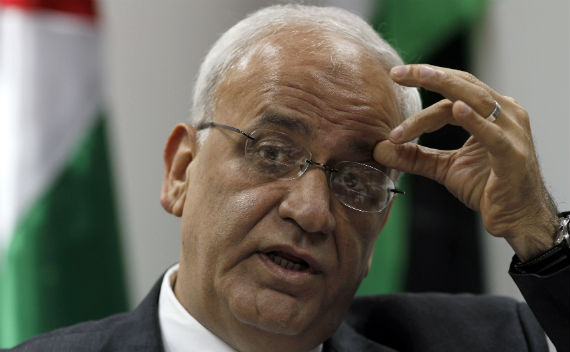More on:

That Israeli and Palestinian negotiators will meet with Jordanian and Quartet representatives on Tuesday is good news. Despite serious mutual distrust and the strong likelihood that nothing significant will emerge that day, both Israelis and Palestinians recognize that, as Winston Churchill once quipped, “To jaw-jaw is always better than to war-war.”
That the two sides see it as in their interests to talk right now is important. With Syria burning, Iran saber rattling, and Egypt mired in internal unrest, regional uncertainties could have propelled Israelis and Palestinians to continue waiting to see how things pan out.
Both Palestinians and Israelis recognize that time will not make it easier to resume negotiations. To wait much longer could make it impossible for the two sides to reengage. Conclusion of a Hamas-Fatah reconciliation deal would likely prevent Mahmoud Abbas and the Israelis from returning to the table. Reengaging in talks right now suggests that Abbas would like to at least explore whether a genuine negotiating option might exist. It is also difficult for him to say no to Jordan’s king Abdullah, the last remaining figure willing to actively support engagement with the Israelis right now.
Israel has maintained that it seeks negotiations without preconditions. However, the Quartet has called on both sides to produce serious proposals for a final peace settlement on borders and security. For Netanyahu to lay down a map now of Israel’s future border with Palestine—just weeks before his Likud Party holds a snap primary election—is virtual political suicide, given that his internal challenges come entirely from his right, not his left.
Resuming talks right now, while desirable, inadvertently makes the situation on the ground riskier. Having just visited Jordan, Israel and the West Bank, it is clear that all parties feel considerable anxiety about taking such a step. Abbas is returning to talks without attaining his longstanding demand that negotiations resume with an Israeli settlement freeze. Unless he can demonstrate quickly that talks produce tangible benefits for the Palestinians, he will feel compelled to break them off. Doing so would then probably add momentum to Fatah-Hamas reconciliation, making the prospects for later Israeli-Palestinian talks all the more difficult. Failure could easily lead Palestinian militants to renew violence, arguing that talks do not produce results. Israelis see these risks, and are not convinced that the steps they could adopt would alter this Palestinian dynamic. Yet they do not want to be blamed for not returning to the table, nor, like the Palestinians, do they wish to say no to the Jordanians.
This means that the parties, having decided to resume discussions, must find a way to keep them themselves there. This will require serious diplomatic creativity, outside support, and political courage. Ultimately, it will require both Israeli prime minister Netanyahu and Palestinian president Abbas to take steps that may be unpopular with their core domestic political base, but are supported by their larger political constituents, the majority of whom I firmly believe still want negotiations to succeed.
More on: